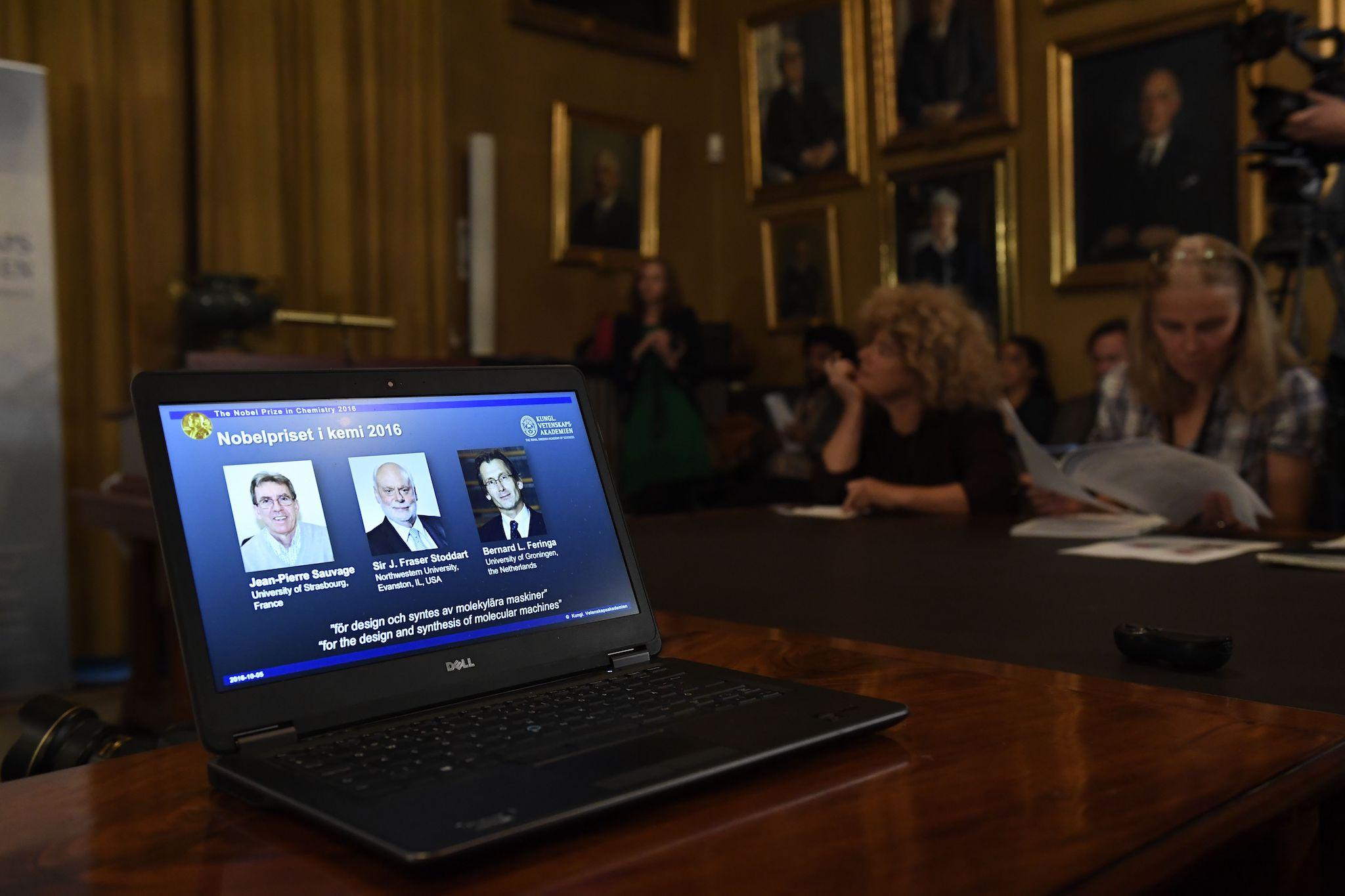All six of America's 2016 Nobel Prize winners are immigrants
And some of them have started pointing this out - while politicians on both side of the Atlantic trade in anti-immigrant rhetoric

Things may just have got a little awkward for politicians engaging in anti-immigrant rhetoric on both sides of the Atlantic: all six of America’s 2016 Nobel Prize winners are immigrants, and some of the laureates themselves have started pointing this out.
With Donald Trump basing a large part of his presidential campaign on anti-immigrant feeling, and with calls for immigration controls dominating the Brexit debate, Sir J Fraser Stoddart, Scottish-born, naturalised American citizen and 2016 Nobel Chemistry Prize winner, has told a US website: “I think the United States is what it is today largely because of open borders."
Sir Fraser, whose work on molecular machines helped “take chemistry to a new dimension” according to the Nobel organisation, also told The Hill: “I think the resounding message that should go out all around the world is that science is global.”
The American scientific establishment, he said, would only remain strong “As long as we don’t enter an era where we turn our back on immigration.”
Such remarks are unlikely to please Donald Trump, who has promised to build an “impenetrable and beautiful” wall between the US and Mexico, and demanded “extreme vetting” of Muslim immigrants.
Especially as Sir Fraser also said the US should be “welcoming people from all over the world, including the Middle East.”

Turning his attention to the UK, where the Brexit debate has been linked to a rise in hate crime and racism following June’s EU referendum, Sir Fraser said: “It’s particularly pertinent to have these discussions in view of the political climate on both sides of the pond at the moment.”
"I’m kind of exasperated with the level of politics in this country and my old country," he added. "I would be excited about voting if I was in Germany. Chancellor Merkel is a qualified chemist."
His fellow Nobel laureate Duncan Haldane, an immigrant from Britain who teaches at Princeton, also told The Hill that while many top scientists came to the US because of its research-friendly funding system, the immigration process could be “a bureaucratic nightmare for many people.”
Professor Haldane shared the physics prize with Scottish-born David Thouless, now at the University of Washington in Seattle, and Brown University professor Michael Kosterlitz, who was born in Aberdeen – to Jewish refugees from Hitler’s Germany.
The other two immigrant Nobel laureates were the joint winners of the economics award: Bengt Holmstrom, originally from Finland, and British-born Oliver Hart, who has warned that Brexit could hurt UK investment and growth.
Nor does this year’s success of immigrants to the US appear to be a one-off. After analysing Nobel winners, Stuart Anderson, of the National Foundation for American Policy, found that immigrants have won 40 per cent, 31 of the 78 Nobels won by Americans in chemistry, medicine and physics since 2000. The countries of origin of the Nobel-winning immigrants included Japan, Canada, Turkey, Austria, China, Israel, South Africa and Germany.
In an academic paper published in June 2014, Mr Anderson wrote: “The passage of the [US] Immigration and Nationality Act of 1965, which eliminated the discriminatory national origin quotas and opened the door to Asian immigrants, and the Immigration Act of 1990, which increased employment-based green card numbers, were key factors in enhancing the ability of America to assimilate talented individuals from around the world into our culture and economy.
“While some of the rise in indicators like immigrant Nobel Prize winners reflects an overall increase in the reputation and capability of American institutions and researchers post-1960, a greater openness to immigration helped make the United States the leading global destination for research in many different science and technology fields, including computers, cancer research and many others.”
The 2016 success of America’s immigrants comes amid widespread anxiety about the possible effects of Brexit on the UK’s scientific achievements.
In July, Nicola Blackwood, chair of the House of Commons Science and Technology Committee, said Brexit could “break” Britain’s knowledge economy unless the Government can negotiate a deal that preserves many of the benefits of EU membership.
She urged Science Minister Jo Johnson, the brother of prominent leave campaigner Boris: “Can I … plead with you to make the case [that] the right kind of immigration system that benefits our science and higher education sectors are in place [and] that the science and innovation community is at the heart of the exit negotiations?”
Academics have also told The Independent that they feared a post-Brexit brain drain.
The day after the June 23 referendum, geneticist Sir Paul Nurse, a former President of the Royal Society and director of the Francis Crick Institute, told The Independent: “Science thrives on the permeability of ideas and people, and flourishes in environments that pool intelligence, minimise barriers and are open to free exchange and collaboration.
“British scientists will have to work hard in the future to counter the isolationism of Brexit if our science is to continue to thrive.”
Join our commenting forum
Join thought-provoking conversations, follow other Independent readers and see their replies
Comments
Bookmark popover
Removed from bookmarks